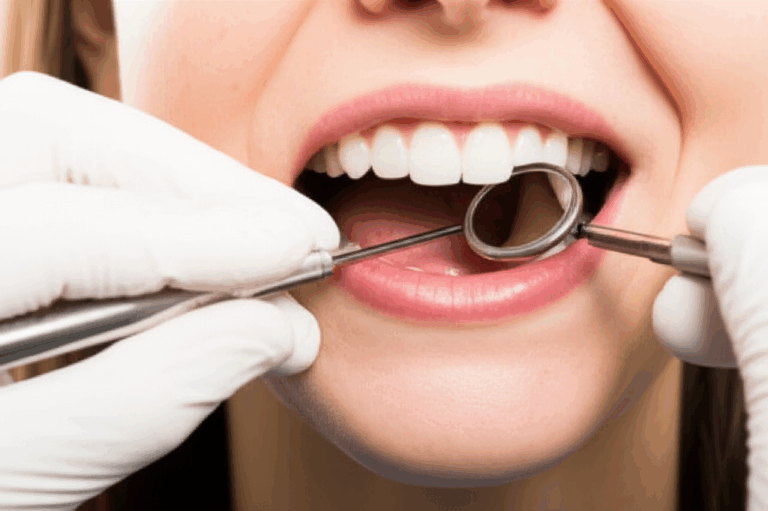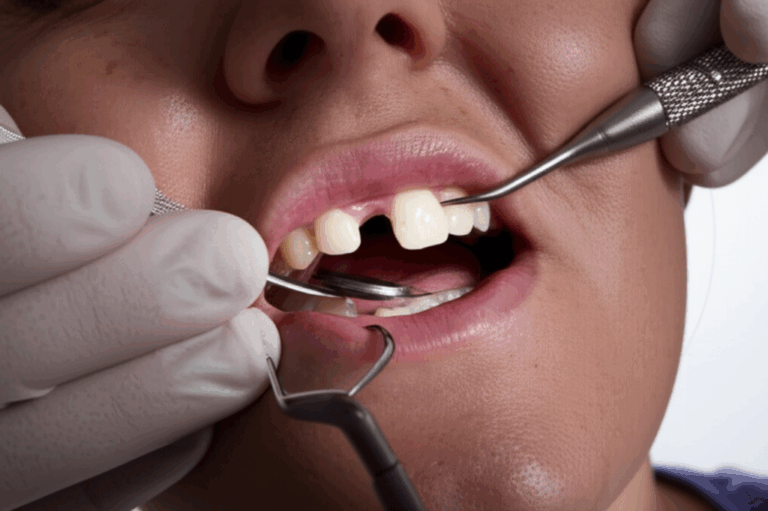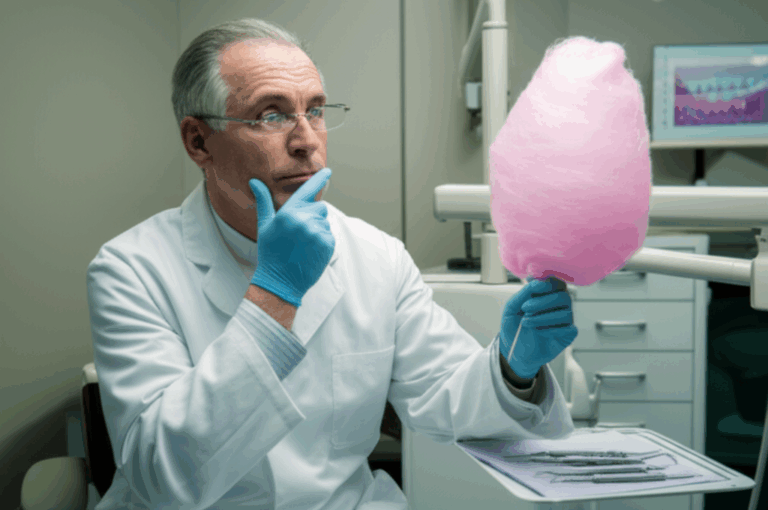
What is a Pediatric Dentist? Your Friendly, Expert Guide to Children’s Dental Specialists
If you’re a parent, you want the best for your child—especially when it comes to their health. Maybe you’ve heard your pediatrician mention a “pediatric dentist.” Or perhaps your child’s first tooth just popped in and you’re wondering, “Is it really necessary to see a special dentist just for kids? Is my child too young?” You’re definitely not alone.
Many parents wonder what makes a pediatric dentist different from a family or general dentist. You want to know why this special role exists, what it means for your child, and how to give your little one a healthy, happy smile for life. That’s what this guide is all about—helping you understand who pediatric dentists are, what they do, and how you can confidently support your child’s oral health journey, step by step.
In This Article
- What Exactly Is a Pediatric Dentist?
- What Kind of Training Do Pediatric Dentists Have?
- Who Should See a Pediatric Dentist?
- What Do Pediatric Dentists Do? (Services & Care)
- Pediatric Dentist vs. General or Family Dentist
- Why Choose a Pediatric Dentist for Your Child?
- When Should You Book That First Visit?
- The Healthy Takeaway: Your Child’s Next Steps
What Exactly Is a Pediatric Dentist?
Let’s begin by talking about the main question you might have.
Simply put, a pediatric dentist is a dentist who only takes care of the teeth and mouths of babies, kids, teens, and children with special health needs. They aren’t just “regular dentists for kids”—they understand that children grow and change quickly, and they know how to make dental visits as easy and helpful as possible for young patients.
Think of a pediatric dentist as a “children’s dental specialist”—the same way a pediatrician is a doctor just for kids. Pediatric dentists have spent extra years learning all about how kids grow, how their teeth and mouths develop over time, and how to work well with children. Their goal? To make sure every child has a healthy smile for life, from the very start.
Key Roles of a Pediatric Dentist:
- Caring for baby teeth and new adult teeth
- Preventing and treating tooth decay (cavities) in kids
- Teaching parents and kids about brushing and healthy habits
- Helping nervous or scared kids feel at ease during appointments
- Fixing problems special to growing mouths
- Providing special care for kids with disabilities or complicated health issues
Parents often ask, “Can’t our regular dentist see my child?” While general dentists can treat children, pediatric dentists have extra skills, know lots about kids’ behavior, and really understand what growing smiles need. For many children—especially if they have health problems, are very scared, or have unique dental issues—this makes a big difference.
What Kind of Training Do Pediatric Dentists Have?
So what makes these specialists different?
Becoming a pediatric dentist isn’t just about liking kids or putting cartoons on the walls. It takes lots of school and training past regular dental school.
Here’s How They Do It:
- Taking care of the mouths of babies, kids, and teens
- How kids think, feel, and act (lots of child psychology)
- Treating kids with special needs (physical, health, or learning troubles)
- Advanced dental treatments for kids (special fillings, crowns for baby teeth, using medicine to keep kids calm, etc.)
- Emergency dental care for broken or hurt teeth and sports accidents
- Starting early checks for braces, crowding, and bite issues
Bottom line: Pediatric dentists are the real experts in mouths and smiles for kids. They’re great at both the dental treatments and making kids and families feel comfortable.
Who Should See a Pediatric Dentist?
You might be surprised at all the kids who can use a pediatric dentist’s care.
Patient Age Range:
- Babies: From their very first tooth, as early as 6 months old
- Toddlers & Preschoolers: Important years for learning how to brush and keep baby teeth safe
- Children: When baby teeth fall out and new teeth come in
- Preteens and Teens: When things get busy with braces, wisdom teeth, or mouthguards for sports
- Kids and teens with special health needs: Any age, if they have physical, growth, learning, or health problems that make dental care trickier
Takeaway? Whether your child just got their first tooth or is almost grown, a pediatric dentist can help with every stage of their smile.
What Do Pediatric Dentists Do? (Services & Care)
So now, what does a pediatric dentist actually DO for your child?
It’s much more than just “filling a cavity.” Here’s what most visits look like, explained simply.
1. Preventive Dental Care (The Basics)
Every great smile starts with prevention! Pediatric dentists help your child stop cavities and gum infection before they even start.
- Baby oral visits: Checking new teeth even before the first birthday
- Regular cleanings and exams: Happening every six months or so
- Fluoride treatments: Give teeth extra strength against decay
- Dental sealants: A thin, safe coat on back teeth to protect them from cavities
- Teaching: Showing families and kids how to brush and floss right at home
- Simple food tips: How snacks and drinks affect teeth
- Breaking habits: Ideas for thumb-sucking, pacifier use, or mouth habits that change the way teeth or jaws grow
2. Fixing and Protecting Teeth (Restorative Care)
Even with good brushing, kids get cavities or lose teeth in accidents. Pediatric dentists are really skilled at fixing problems in a kind way.
- Fillings: Taking out decay and fixing holes in teeth
- Crowns for kids: Tiny metal hats for baby teeth that aren’t strong enough for regular fillings
- Pulp treatment: Helping save a tooth if a cavity or injury gets deep inside
- Pulling teeth: Taking out baby teeth, but only when it’s really needed
3. Emergency Dental Care
- Fixing dental injuries: Quick help if your child bumps, breaks, knocks out, or chips a tooth (lots of kids have some dental trauma during childhood!)
- Easing pain and infection: Fast care for aching teeth, swelling, or pus
4. Watching How Teeth and Jaws Grow
As kids grow, their teeth and jaws keep changing.
- Keep track of their developing mouth
- Starting braces checks early: Looking for problems before they get bigger
- Space holders: Devices to save room if a baby tooth falls out too soon, so adult teeth come in right
- Helping teeth come in: Checking when new teeth or wisdom teeth need extra help
5. Coping with Worries and Keeping Kids Calm
Many kids are a bit scared at the dentist! Pediatric dentists use gentle ways to help kids feel cozy and brave.
- Kid-friendly offices: Patience, easy words, distractions like cartoons or toys, and little kid-sized chairs
- Behavioral tricks: “Tell-Show-Do,” role-playing, and happy prizes
- Sedation/dental medicine: Laughing gas, medicine to help relax, or deeper sleep for especially nervous or young kids
6. Dental Care for Special Needs
Pediatric dentists have special training to treat children who have autism, Down syndrome, cerebral palsy, sensory troubles, developmental delays, or other health problems. They believe every child deserves healthy, strong teeth—and know how to help.
Pediatric Dentist vs. General or Family Dentist: What’s the Difference?
You might wonder, isn’t my family dentist good enough? Here’s a simple chart to show why a pediatric dentist is sometimes the best choice.
| Pediatric Dentist | General/Family Dentist |
|---|---|
| 2-3 extra years’ training just for babies, kids, teens, & special needs | Takes care of all ages, less time learning about kids’ needs |
| Great at child growth, child feelings, and how to calm fears | Not as much child behavior training |
| Offices made just for children: small seats, fun colors, cartoons | Grown-up office, not always set up for kids |
| Only sees kids and teens | Sees adults, elderly, and sometimes children |
| Does special kid treatments like baby tooth root canals, crowns, trauma care, and sedation | Doesn’t do these treatments as often |
| Highly trained to calm worried or scared kids | May not offer all kid-friendly calming helps |
| Often sees kids with special needs or tough medical problems | May need to send tough cases to a pediatric dentist |
Bottom line: For babies, very young kids, nervous children, children with health problems, or anyone wanting safer care that puts kids first, pediatric dental offices are the best fit.
Why Choose a Pediatric Dentist for Your Child?
Still not sure if a pediatric dentist is the way to go? Let’s look at some clear reasons kids and families benefit.
1. Extra Kid Knowledge = Safer, Better Care
Children’s mouths are not just smaller adult mouths! Pediatric dentists understand baby teeth, growing jaws, and all the fast changes of childhood. They know how to spot problems early—way before they get worse.
2. Happy Dental Visits Begin Here
Imagine a dental visit where your child feels safe, maybe even like going! Offices are built to reduce fear, with smiles, kindness, gentle care, and little rewards that teach kids: “Dentist = good.”
3. Gentle Ways to Calm Kids
Kids can wiggly, worried, or tired. Pediatric dentists are patient, creative, and never rush a nervous child. It’s about making everyone feel welcome and understood.
4. Prevention Comes First
Regular cleaning, fluoride, sealants, and family lessons all help avoid “fixing teeth later.” These dentists focus on teaching parents and kids to build good daily habits at home.
5. Care for All Children—No Matter the Challenge
Kids with extra health or learning needs don’t have to miss out. Pediatric dentists are ready for any situation and treat every child with care.
6. Sets Up a Healthy Future
Learning to trust the dentist makes dental visits easy long after childhood. Healthy habits and low-fear visits now mean healthier grown-ups later.
When Should You Book That First Visit?
You might be thinking, “But my child has only a couple of teeth—should we really go already?”
The AAPD’s Golden Rule: First Tooth, First Birthday
The American Academy of Pediatric Dentistry and the American Dental Association both say: Book your child’s first dental visit by their first birthday, or within six months after the first tooth comes in.
Why so soon?
- It’s easier to stop problems than fix them: Early visits spot problems before they’re painful or expensive
- You learn a lot: Parents get tips about teething, cleaning, what to look out for, and when to ask for help
- Find your “dental home:” Having a regular, trusted dentist so your child always feels safe
- Saves money over time: Early visits mean fewer big dental bills later on
Tip: Take your child for checkups every six months, or as your pediatric dentist suggests. Making visits regular and friendly helps your child understand nothing scary will happen.
The Healthy Takeaway: Your Child’s Next Steps
Let’s wrap up with quick tips and steps so you feel ready to take care of your child’s mouth.
Key Points in a Nutshell:
- A pediatric dentist is a children’s dental expert—they know how kids grow and how to keep them comfortable.
- They treat babies through teens (and those with special needs) every step of the way.
- They’re all about prevention and teaching to help avoid dental problems later.
- Their offices and approach are all about kids—less fear, more smiles!
- First visit by age one sets up a lifetime of good dental health.
What Should I Do Next?
Frequently Asked Questions
Q: What’s the most common dental problem in kids?
A: Cavities (tooth decay) are the most common long-term disease for kids—far more common than asthma! Stopping them early is super important.
Q: Do pediatric dentists treat teens?
A: Yes! They look after babies, kids, AND teens—especially important during braces and for sports injuries.
Q: Will it cost more to see a pediatric dentist?
A: Most times, the cost is about the same as a general dentist—and starting early usually means spending less because you prevent problems.
Q: Does my child need a pediatric dentist forever?
A: Nope! Most teens move to a general dentist once they’re older and more at ease.
Q: How do I find a good pediatric dentist?
A: Ask your family doctor, pediatrician, or friends for advice. You can also check the American Academy of Pediatric Dentistry (AAPD) website for dentists near you. Don’t be shy—call the office and see if they’re used to helping kids like yours.
Fun Tips for a Happy Visit
- Practice at home: Count teeth, play pretend “dentist,” or read storybooks about dentists.
- Keep it upbeat: Don’t use words like “hurt,” “pain,” or “shot.” Instead, talk about shiny teeth and fun stickers or prizes.
- Bring comfort: Let your child bring a favorite toy, blanket, or even a sibling along.
Quick Wrap-Up: The Compassionate Educator’s Advice
You’ve got this! Choosing a pediatric dentist is about more than fixing cavities. It’s picking a caring helper who wants your child to have a strong, happy smile and healthy life. Your pediatric dentist becomes a trusted partner, working with your family for healthy, confident smiles.
If you want to learn more about dental ceramics lab technology, how a digital dental lab helps make crowns or custom space holders for kids, or how new crown and bridge lab work gives better results, these parts of dental care help pediatric dentists care for your child with gentle and modern tools.
Your child’s healthy smile starts with just one easy, loving choice: make their dentist a safe, friendly “dental home.” If you haven’t yet, pull out your calendar now and book that first visit. That little step will make a big difference in your child’s future smile!








